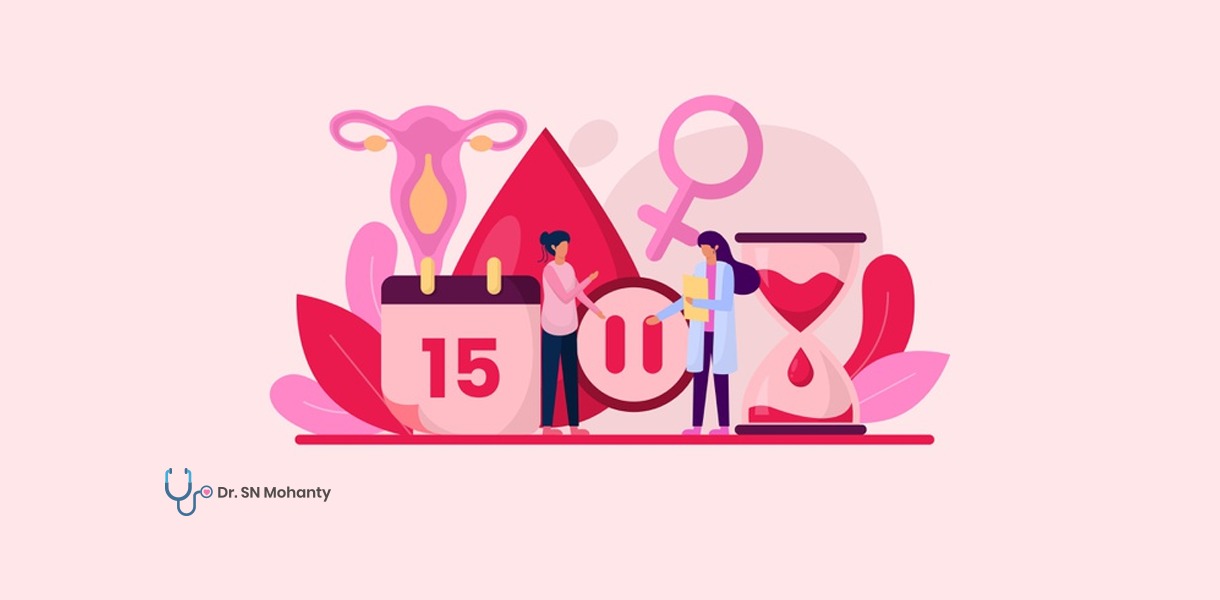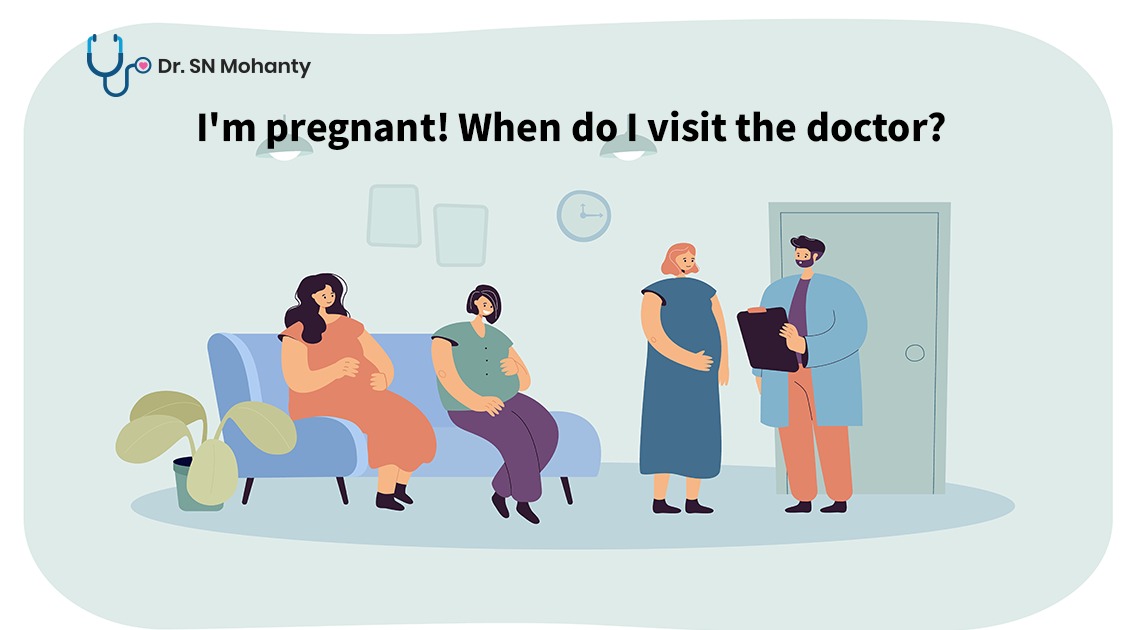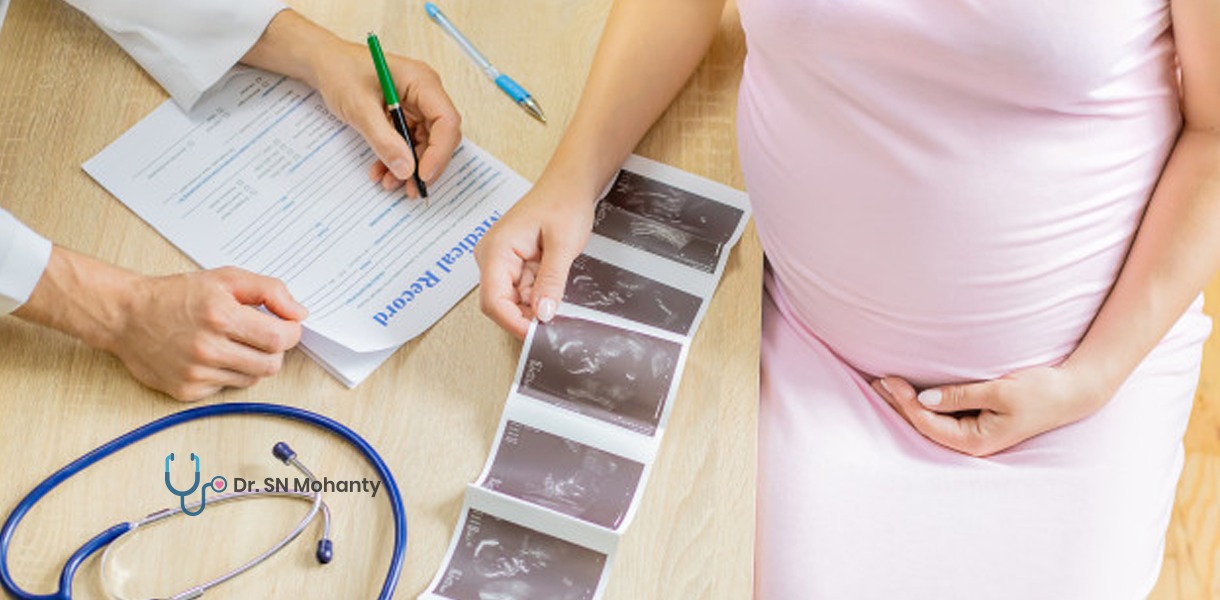
Polycystic ovarian disorder (PCOD) is a condition that affects women of childbearing age or adolescence. In case you're diagnosed with PCOD, it might be harder to get pregnant. What's more, in case you're pregnant, you're in danger of additional complications during pregnancy, labor, and delivery.
Women with PCOS are more likely to have a miscarriage when compared with ladies who don't have PCOS. They are additionally bound to develop pre-eclampsia, gestational diabetes, and have a premature delivery. This could prompt trouble during delivery or cesarean delivery.
Some of the common symptoms associated with PCOD:
• Irregular menstrual periods
• Weight Gain
• Development of hair all over the body and face
• Acne
• Infertility
• Thinning or balding of hair
• Insulin Resistance
Diagnosis
Often when women face the above symptoms, they visit the gynecologist, and after examining they find that they are diagnosed with PCOD. Also, some women aren’t aware and only know they have PCOD when they face trouble in getting pregnant.
During the appointment with the doctor,
• He/she will ask you about your symptoms
• Conduct ultrasound scans to look for cysts in the ovaries
• A blood test to male hormone levels
PCOD & Infertility
It is quite common and natural for women diagnosed with PCOD to stress over their capacity to get pregnant, regardless of whether they would prefer not to be pregnant at any point soon. Realizing that there are options accessible to become pregnant can help them reduce stress.
Ovulation regularly occurs about once every month. Women with PCOD may ovulate less oftentimes or typically and might be more inclined to miscarriages, which is the reason PCOD is a typical reason for Infertility. Women attempting to get pregnant with PCOD, face infertility as ovulation is irregular, and as result fertilization wouldn’t take place at the right time.
Women with PCOD are bound to seek for the right medication & treatment for fertility than women who don't have it. If any of our readers have been diagnosed with PCOD, you can have a healthy baby with no complications provided that you are in regular check-up with your gynecologist who is well experienced and can give you the right treatment & medication to control your symptoms. It is advised to always refer to the best gynecologist to receive the best treatment.
Bodyweight, PCOD, and fertility
Obesity and PCOD are associated. Obesity can make symptoms of PCOD worse and make it harder to get pregnant. Weight reduction is generally suggested as an initial step for women with PCOD who are overweight or obese and attempting for conception.
Weight reduction can enhance the chances of ovulation and having regular periods. Weight reduction alone is sometimes enough to restart ovulation, yet additionally expands the opportunity of ovulation and conceiving when combining with fertility medications in comparison to only using fertility medicines. Being a sound weight is prescribed for anybody attempting to get pregnant to reduce the risk of complexities like gestational diabetes, hypertension, and pre-eclampsia.
For women diagnosed with PCOD, it would be a great challenge for them to reduce weight and may take much time in doing so. But it is advisable to follow a healthy diet, avoid sugary drinks, have a protein-rich & low-carb diet, quit on addictions if any, and engage themselves in any physical activity or join yoga classes to shed some extra pounds.
Dangers for mothers-to-be with PCOS
Having PCOS may make it harder for you to get pregnant
Ladies with PCOS are likely to be corpulent and to depend on medications, treatment, and maybe the use of the latest technologies to get pregnant. Women with PCOS have an increased risk of building up a few medical problems that can last life which includes:
• insulin resistance
• type 2 diabetes
• high cholesterol
• hypertension
• coronary illness
• stroke
• potentially an expanded danger of endometrial cancer
Treatment & Medication for PCOD
Insulin resistance is common in women with PCOD. Insulin is a hormone that is released from the body to manage the measure of glucose (sugar) in the circulatory system. Insulin resistance happens when the body's cells don't react regularly to insulin, bringing about a lot of it in the body (7). The excess insulin disrupts the hormones created by the ovaries and pituitary gland, and this interferes with ovulation.
*Metformin is a medication that makes it simpler for the body to utilize the insulin it makes, diminishing the measure of insulin in the circulatory system. Metformin is utilized for individuals with PCOD to stimulate ovulation
Some other medications are used to induce ovulation. But the doctor can prescribe you the correct medication according to your body type.
On the off chance that weight reduction and ovulation medications are not fruitful, there are different choices. Surgery is performed on the ovaries called laparoscopic ovarian drilling, which is performed by a surgeon. This medical procedure is as successful as medications at increasing the chances of ovulation and pregnancy and is some of the time used as a choice when medicine alone hasn't worked.
Another choice is in vitro treatment (IVF).
If you are dealing with PCOD and looking for the best treatment, then visit Dr. SN Mohanty, the best gynecologist in Bhubaneswar to receive the best treatment & medication.










